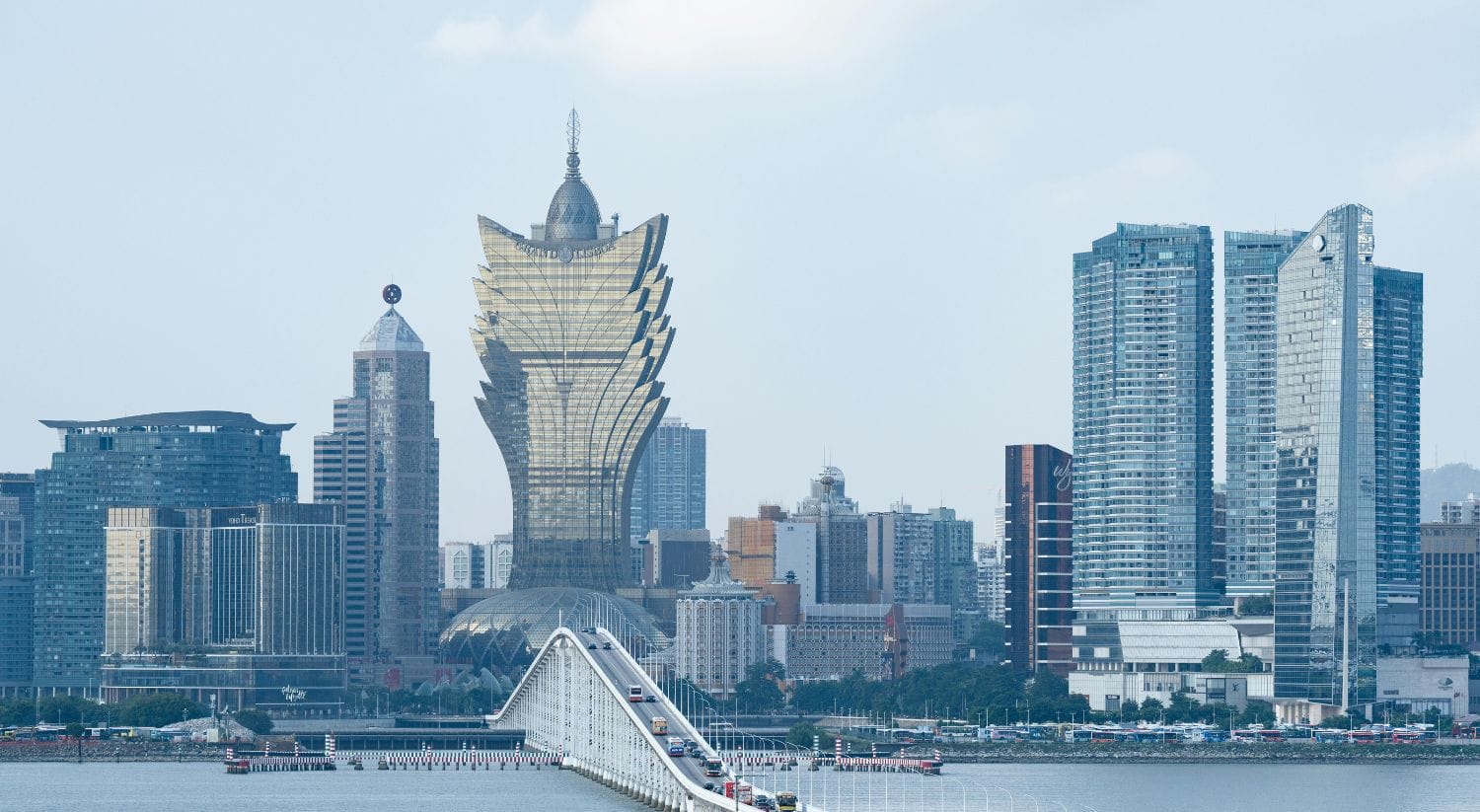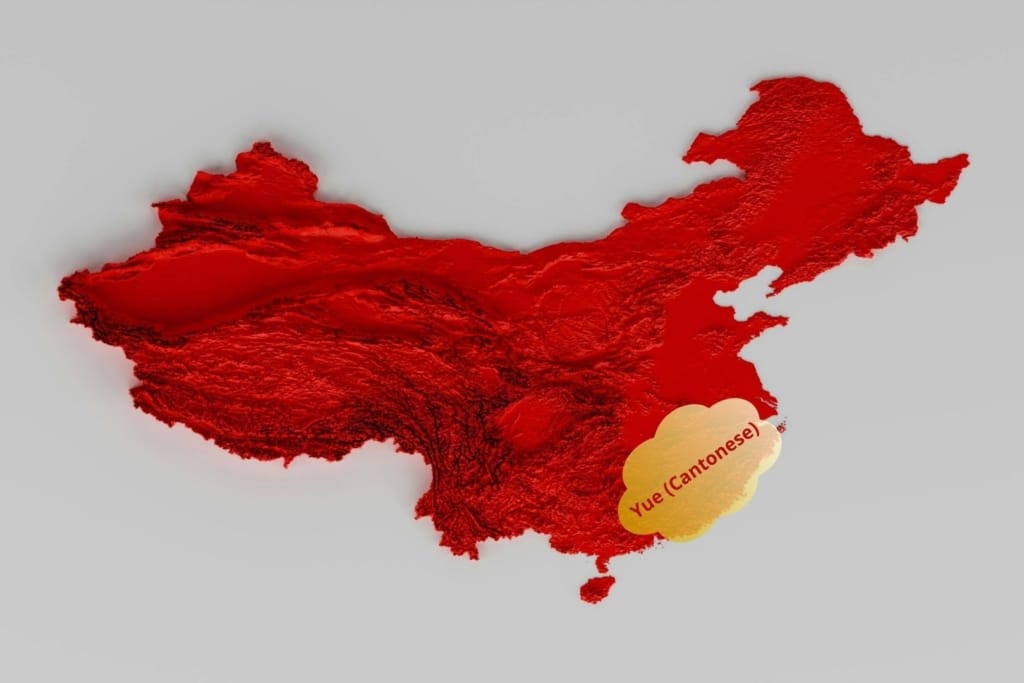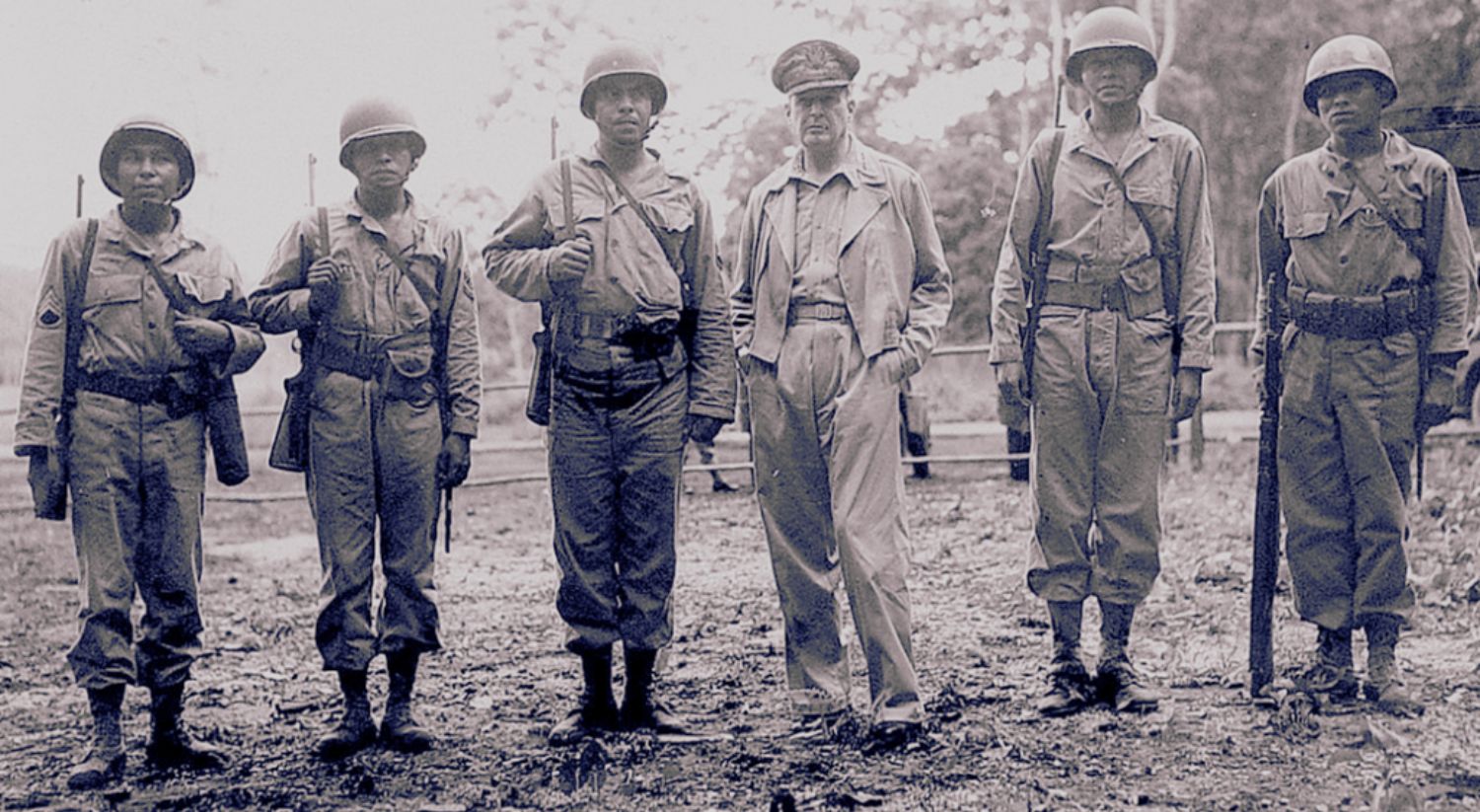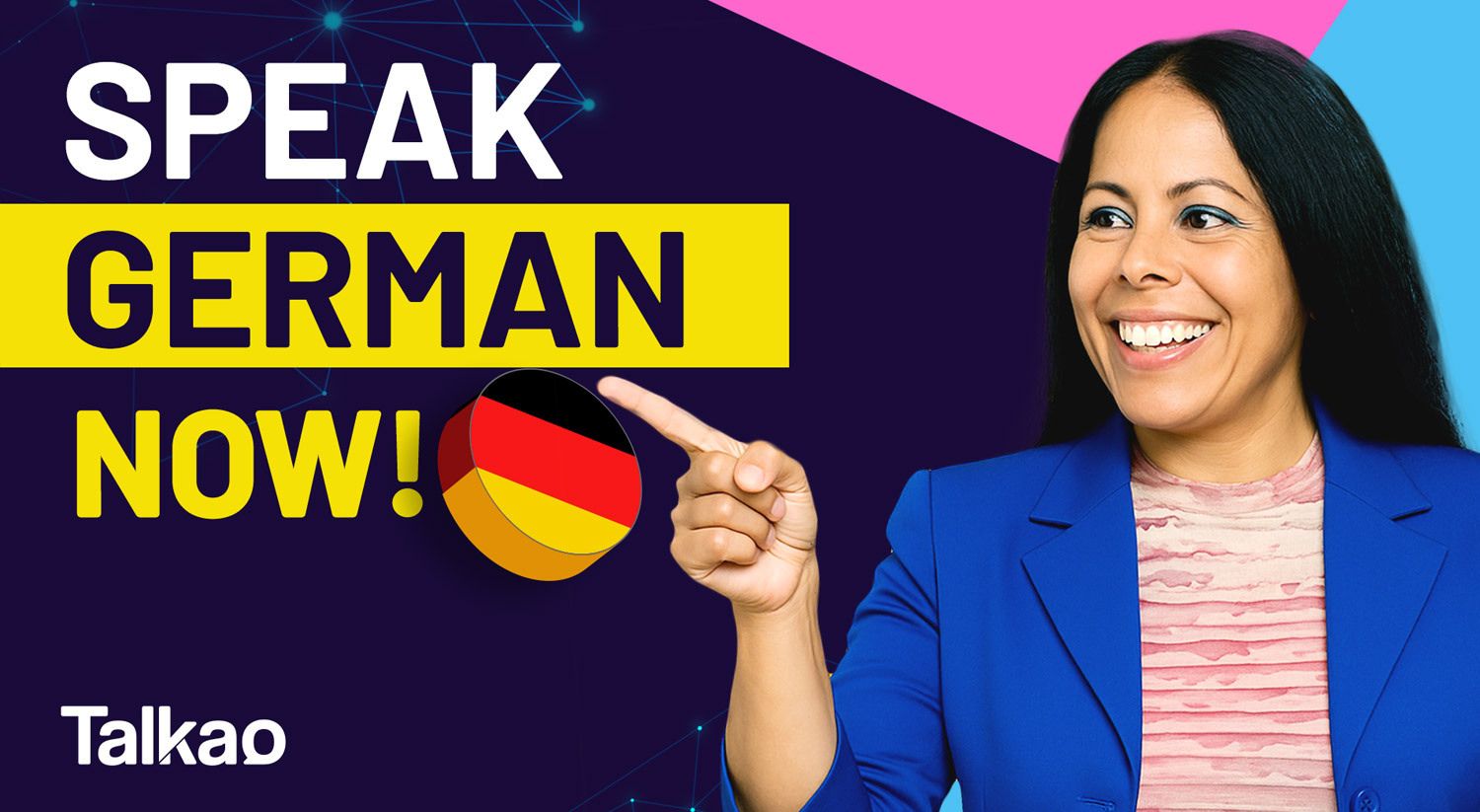
Today, we’ll explore some of the most commonly used expressions in Yue, also known as Cantonese Chinese.
Many people mistakenly believe that Yue is just a dialect of Mandarin, but in reality, it is a distinct language with its own unique structure. The confusion arises because Yue shares some linguistic foundations with Mandarin.
Cantonese is primarily spoken in Hong Kong, Macau, and parts of southeastern China. It is also the third most spoken language in China, after Mandarin and Wu.
For many, “Chinese” is thought of as a single language, similar to Spanish or English, but this is a common misconception. In fact, China has nearly 1,000 regional languages and dialects. Among them, Yue stands out as the second most spoken language among Chinese communities outside of China.
Get ready to discover one of the world’s most fascinating and culturally rich languages as we take a deep dive into Cantonese and its influence on how we perceive China.
Yue is an independent language, not a Mandarin variant
A common misconception is that China has only one language. Many people use the term “Chinese” to refer to any language spoken in China. While not entirely incorrect, this oversimplification fails to capture the linguistic diversity of the country.
At first, the different languages spoken in China may sound similar to an untrained ear. However, they have major differences that go beyond pronunciation.
Why are there so many languages in China?
The reasons are historical rather than practical. China is one of the oldest civilizations in the world but also one of the largest countries on Earth. Its vast size has led to the development of many different linguistic and cultural traditions across its regions.
One of these regions is Guangdong Province, located in southeastern China. Its capital, Guangzhou (Canton), is one of the largest cities in China and shares borders with Hong Kong and Macau. Because of this, Yue (Cantonese) is the dominant language in these areas.
Guangdong is one of the most populous regions in China, with around 125 million inhabitants. But how does Yue differ from Mandarin? Let’s take a closer look.
Key differences between Mandarin and Yue (Cantonese)
Comparing Yue to Mandarin is like comparing Italian to Portuguese—they share some linguistic roots, but they are completely different languages. Here’s how they differ:
Tonal differences
Both Mandarin and Yue are tonal languages, meaning that the meaning of a word changes depending on the tone used. However, despite this similarity, their tonal structures are quite different:
- Mandarin has four main tones plus a neutral tone.
- Cantonese has six to nine tones, depending on the region.
This makes Yue a more complex language phonetically, requiring greater precision in pronunciation.
Writing system differences
Both Mandarin (Putonghua) and Yue use Chinese characters, but their writing systems differ significantly:
- Mandarin uses Simplified Chinese characters, a modern version with fewer strokes, making them easier to learn and write.
- Cantonese primarily uses Traditional Chinese characters, especially in Hong Kong and Macau. These characters are more complex and preserve historical writing traditions.
Because of this, Cantonese speakers can usually read Mandarin, while Mandarin speakers often struggle to read Yue texts.
Grammatical differences
Although Yue and Mandarin share many grammatical rules, they also have significant differences:
- Yue uses many modal particles to express nuances and emotions, whereas Mandarin does not rely on them as heavily.
- Sentence structures differ between the two languages, meaning that a phrase in Cantonese may be constructed very differently in Mandarin.
This is why understanding written Mandarin does not guarantee understanding spoken Yue—they are fundamentally different in structure.
Vocabulary differences
Yue and Mandarin have unique vocabulary, with many words and expressions lacking direct equivalents between the two languages. Even when a Mandarin equivalent exists, it may be used differently in Yue.
Let’s look at two basic examples:
- “Thank you” in Mandarin is “xièxiè” (谢谢), but in Cantonese, you would say “móhngói” (唔該) or “dójeh” (多謝) depending on the context.
- “To eat” in Mandarin is “chī” (吃), while in Cantonese, it is “sik6” (食).
There are thousands of words that differ between the two languages, making them far from interchangeable.

Why is Mandarin more widely spoken than Yue?
Despite its rich history and cultural significance, Yue is far less spoken than Mandarin. But why?
- Mandarin is the official language of China, promoted by the government for national unity.
- Yue is mostly spoken in southern China, limiting its influence outside of Hong Kong, Macau, and Guangdong.
- Mandarin is the primary language taught in schools, making it more widely adopted across the country.
However, Yue remains an essential language, especially among Chinese communities abroad. It continues to play a vital role in Cantonese culture and identity, ensuring its survival for generations to come.
The expansion of Yue and Mandarin: A key difference
As we mentioned earlier, China is often perceived as a single culture, but this is not entirely accurate. China, as a nation, is composed of multiple regions with vastly different climates, cultures, and histories. Within this Asian giant, there are approximately 920 languages and dialects spoken.
These languages are still used today by millions of people across China, and in some cases—like Yue (Cantonese)—they serve as lingua franca for populations exceeding 80 million people worldwide.
However, there is an important political factor that cannot be ignored: Mandarin is the official language of both China and Taiwan. This official status means that it is spoken by over a billion people and is the dominant language in education, business, and diplomacy throughout China.
Meanwhile, Cantonese remains the primary language in Hong Kong, Macau, and parts of southern China. Additionally, it is the predominant language among overseas Chinese communities, spoken by millions of Chinese immigrants around the world.
Cantonese culture and the importance of Yue in the modern world
Cantonese culture is one of the richest and most vibrant within the Chinese world. It boasts a unique identity, reflected in its cuisine, traditions, and art. But above all, its most defining element is its language: Yue, also known as Cantonese.
As we have seen, Mandarin may be China’s official language, but Yue continues to play a crucial role in daily life. It is also the foundation of the cultural identity of Hong Kong, Macau, and Guangdong Province. To fully understand this, we must take a brief look at its history.
Yue: A language with a thousand-year history
Yue (Cantonese) is one of the most historically rooted languages in China. It originated in southern China and has evolved over the centuries, retaining strong influences from the Tang and Song dynasties.
Even today, Yue remains deeply embedded in the cultural fabric of southeastern China. Its unique linguistic expressions reflect a cultural heritage that has endured for centuries. Additionally, the Cantonese movie industry, music, and the broader cultural movement have played a significant role in preserving the language.
Currently, Yue is spoken by over 85 million people worldwide. Among the many linguistic varieties of Yue, three key communities stand out:
- Hong Kong
- Macau
- Overseas Chinese communities

The role of Yue in Hong Kong
In Hong Kong, Cantonese is the primary language and a core component of local identity. Despite the growing influence of Mandarin and English, Cantonese remains the most widely spoken language. It is the main language used in education, government, and media.
Additionally, Hong Kong’s film industry has played a crucial role in popularizing Cantonese internationally. The city’s powerful economy and global influence continue to reinforce the relevance of Yue on the world stage.
The importance of Yue (Cantonese) in Macau
Macau has a strong Portuguese influence, as it was a Portuguese colony until 1999—the last European colony in Asia. This historical connection has given Macanese Cantonese a distinctive variation influenced by Portuguese.
Despite Portuguese being an official language in Macau, Yue remains widely spoken and an essential part of the region’s identity. In sectors such as tourism and entertainment, including Macau’s world-famous casinos, Cantonese is the dominant language.
The influence of Yue in chinese communities
Chinese communities across the world—in the United States, Canada, Australia, and the United Kingdom—have helped preserve the Cantonese language and traditions. In these overseas communities, Cantonese is passed down from generation to generation, maintaining its status as a heritage language.
Many Chinatowns around the world have Cantonese-language schools, media outlets, and festivals, ensuring that the language remains alive and thriving. In fact, Yue is one of the most widely spoken foreign languages in regions like Australia and the southwestern United States.
Is learning Yue (Cantonese) difficult?
After exploring the history and significance of Yue, a common question arises: Is it easy to learn Cantonese?
Contrary to popular belief, Yue is an accessible language that can be learned quickly with the right approach.
If you’re planning to visit Hong Kong, Macau, or Guangdong, it’s highly recommended that you familiarize yourself with some basic expressions. With the help of Talkao translation apps, you can improve both your writing and pronunciation.
- Talkao’s augmented reality translator allows for fast and precise communication.
- The camera translator helps translate signs, menus, and texts into Yue.
- The Talkao dictionary provides definitions for thousands of words, all accessible from your phone.
Basic Yue expressions you should know
Now, let’s explore some essential Cantonese expressions to help you get started on your learning journey!
Everyday expressions
| Greetings and farewells in Yue (Cantonese) for beginners |
|---|
| 你好 (Neih hou): Hello (formal/informal) |
| 早晨好 (Jou saan): Good morning |
| 你好唔好? (Neih hou m´hou?): How are you? |
| 再見 (Joigin): Bye |
| 明天見 (Ming tin gin): See you tomorrow |
| 保重 (Bou jung): Take care! |
| Basic Manners in Yue (Cantonese) for Beginners |
|---|
| 請 (Ching): Please |
| 多謝 (Doh je): Thank you |
| 謝謝 (Mm goi): appreciated |
| 小心 (Deui m´h jyuh): I am sorry |
| 帮忙 (Mm hou yi si): Excuse me |
| Personal introductions in Yue (Cantonese) |
|---|
| 我叫 (Ngoh giu…): My name is… |
| 你叫什麼名字? (Neih giu me meng?): What is your name? |
| 我很好 (Ngoh han hou): I’m ok |
| 你呢? (Neih ne?): And you? |
| Common Travel Phrases in Yue (Cantonese) |
|---|
| At the airport |
| 我需要席位 (Ngoh seui yiu chek wai): I need a seat |
| 請問起飛機依時的時間? (Ching man hei fei gei yi si dik si gaan?): What time does the plane leave? |
| At the Hotel: |
| 我想預設一個房間 (Ngoh seung yu ding yat go fong gaan): I want to book a room |
| 有無 Wi-Fi? (Yauh mou Wi-Fi?): Heres is Wi-Fi connection? |
| At the Restaurant: |
| 請給我菜單 (Ching kap ngoh choi daan): Please give me the menu |
| 請問算計單 (Ching man syun ngai daan): Could you bring the bill? |
| Emergencies: |
| 幫助 (Bong jo): Help! |
| 我需要救命 (Ngoh seui yiu gau meng): I need assistance! |
| Medical issues |
| 我不舒服 (Ngoh m´syu fuk): I am feeling sick |
| 我需要看醫生 (Ngoh seui yiu tai yi sang): I need a doctor |
As you can see, with the help of technology, you can easily speak Yue (Cantonese) and enjoy the beauty of this ancient language, so…
祝你好運!
Last entries
French prepositions: Your first French class with Talkao
In our first French lesson with Talkao, we’ll learn more about French prepositions and their uses.
The Navajo Code: When language becomes strategy
In military history, the Navajo code takes pride of place for its effectiveness. But did you know there are many more examples? Let’s discover them.
Your first German class with Talkao: Greet and introduce yourself like a native
Learning to introduce yourself is key in any language. Today, in your first German class, you’ll learn how to do it fluently and easily.












Newsletter